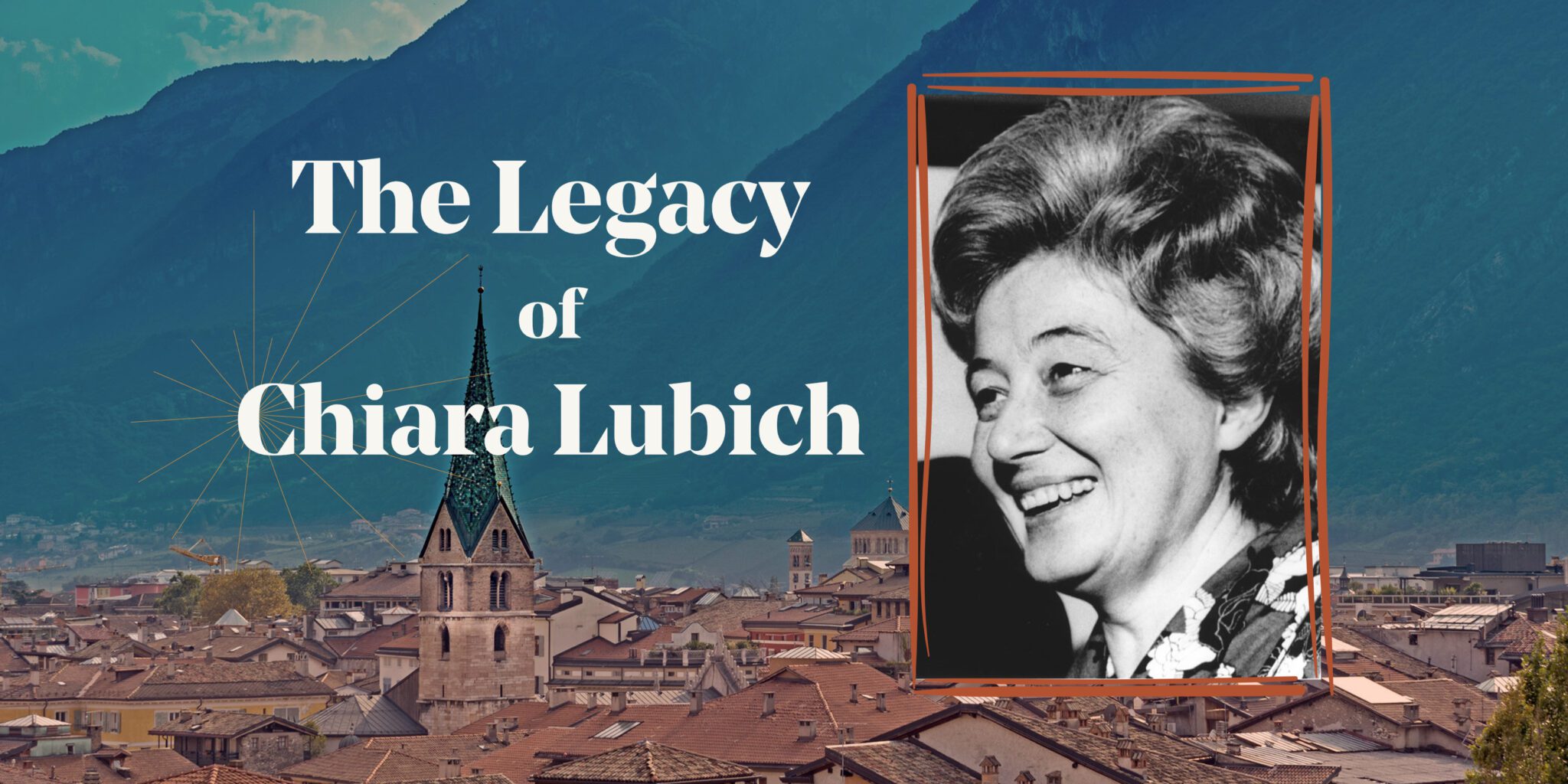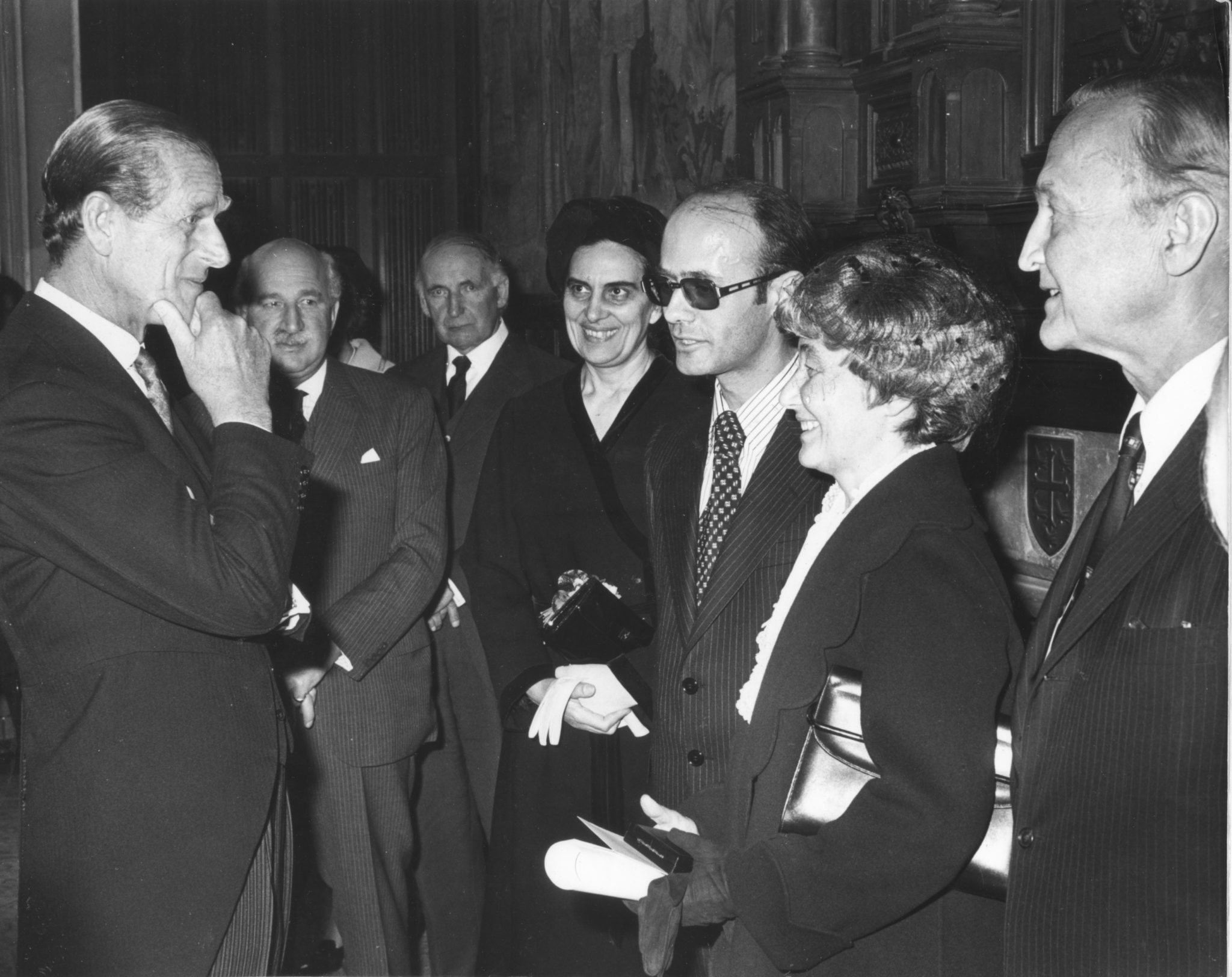Today, we remember Chiara Lubich, founder of Italy’s Focolare Movement.
Chiara Lubich began her career as an elementary school teacher in Trent, Italy. During this time, her town and country were devastated by the impact of World War II.
It was during this turmoil that Lubich felt God’s calling and immediately sought permission from her priest to be consecrated to God. This marked the beginning of the Focolare Movement, which promotes spiritual and social renewal. Through her movement, Chiara was able to build relationships with leaders all over the world, from Popes to Buddhists, to the heads of civil and political parties.
We remember her on the anniversary of her passing, March 14th, by reflecting on her thoughts delivered at the 1977 Templeton Prize award ceremony.
-

Sir John Templeton and Chiara Lubich, 1977 Templeton Prize Laureate, meeting with Prince Philip, Duke of Edinburgh
“One day a phrase in the Gospel struck us: ‘Anyone who listens to you listens to me’ (Luke 10: 16). Jesus addressed this phrase to the Apostles. Yes, everything was born so spontaneously. But the bishop, the apostle today, he who represents God, does he know about it? Will he be happy? We presented ourselves to him, ready to destroy all that had been done directly he requested it. The bishop concluded: ‘Here there is the finger of God.’
The war ended. We could travel again. But who could take away from our heart what God had marked on it? The circumstances of life, study, work, the family, took one or other of us to different cities in Italy. Wherever one of us arrived, a phenomenon similar to the one in Trento occurred. Groups were born silently, of people who wanted to live the Gospel.
The promises it offers are fascinating and extraordinary but it does not deceive. It is possible to follow Jesus — what greater adventure can there be — on condition that we renounce ourselves and take up our own cross (cf. Luke 9: 23). This is an experience we make every day. We will have eternal life and the hundredfold already in this life, in terms of brothers, sisters, fathers, mothers, houses, and work, but in the midst of persecutions, but we must be detached at least spiritually from everything (cf. Mark 10: 29–30). The Movement is a living witness that the promises of Jesus actually come true. It has lived and will always live the Gospel in its aspects of suffering and marvellous joy.
The Focolare Movement went ahead irresistibly. At its heart there are little communities of a new style called focolari, made up of men or women, who are joined so far as is possible, by married people who strongly desire holiness. (At present there are 217 focolari in 33 countries, and a total of 2,400 focolarini). God, step by step, inspired an ordering of the movement. This was logical. Those involved with it by now are not just young women and men, but people from every sort of social background, and also priests, religious, and nuns. Among the most committed lay people, after the focolarini, come the volunteers. They live in their own homes, and live the same spirit, with set commitments.”
— Chiara Lubich, 1977. Read the full speech.

